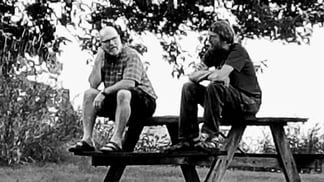“I’m not asking for unanimous agreement. I do expect unanimous respect in my church!” said a church member in frustration. I recently worked with a congregation in a time of conflict attributed to a range of issues ranging from theological to logistical to financial.
Mutual respect seems like a reasonable “ask” among people who value their relationships with each other. What does respect look like in a time of disagreement? If trust and respect had been present, the congregation's escalation into conflict might never have happened.
Deep listening shows that we value the other person. If I value my relationship with a person who believes differently from me, I invest in that relationship by being 100% present with them in a conversation. Listening requires that I ignore my phone and step away from other distractions. I need to suspend my own emotions and rebuttals and focus on listening to understand. As I focus on the other person, I listen with open curiosity for what is said and what is not said. I need to listen with my gut, paying attention to the silences, pauses, posture, and emotions. Deep listening helps to build the trust that keeps disagreements from turning into destructive conflict.
Rather than rapid-firing questions intended to entrap the other person, we ask questions because we care and we want to understand. We are honestly curious about what other people think. Asking powerful, open-ended questions invites reflection. The questions aren’t meant to trip up or confuse the other person. The purpose is clarity and understanding.
The Quakers have a clearness process for processing decisions in a group. The group members ask questions to clarify their understanding and reflect back what they are hearing. As Quaker author Palmer Parker said about this process, “No fixing, no saving, no advising, no correcting.”
Powerful, open-ended questions help us to listen to understand. A powerful question often begins with “What…?” A powerful question may require some time for someone to think about it before responding. It’s ok to sit with the silence rather giving in to the urge to fill that space with more words.

- What experiences in your life shaped your thinking on this matter?
- What do you want to see happen?
- What do you think would be the best possible outcome here?
- What other avenues might lead to what you hope for?
- What possible alternatives are out there?
- What do you see as the impact if this situation cannot be reconciled?
If you ask powerful questions, be sure to allow for silence after the other person speaks. Hopefully, your question is so good that it causes the other person to need to consider their response. The pause also gives you a chance to reflect on and digest what the other person has said. The silence itself intentionally slows down the exchange and communicates respect for the thoughts of the other person.
The response you receive when you ask a truly open-ended question has no right or wrong answer because it reflects the thoughts of the person who is speaking. Their responses can therefore be received as what is true for that person.
Deep listening is the hallmark of dialogue, rather than debate. In a debate, I try to successfully argue my position in order to beat an opponent. In contrast, the purpose of a dialogue is to grow in understanding of the other person and myself. Healthy dialogue leads to the possibility of finding a way forward.
When you try out some powerful questions, you might be invited to share your own thoughts in response. If that happens, think of how you can share your own opinions and feelings as stand-alone statements rather than as a rebuttal or a negative comparison with their points.
Finally, be sure to thank the other person for talking with you. They have given you the gift of trust with their story and their thoughts. Unanimous respect is not too much to ask.
Tags:
process consulting, Non-Profit Leadership, listening, leading, Jeanne Zimmerly Jantzi, Clarity and Curiosity Blog, conflict transformation/Jeanne%20Zimmerly-Jantzi%20Headshot%20(300x300).png)
November 8, 2022
Comments